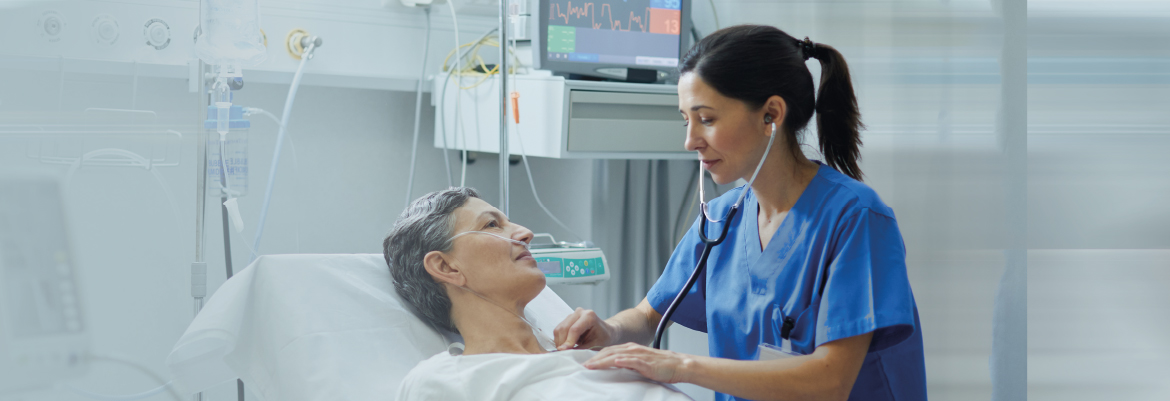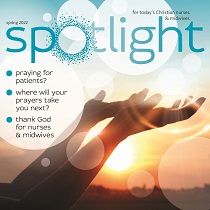About six months ago, I was praying with my church family in our midweek meeting. Suddenly there was a thought in my head that had never been there before. Generally, if a thought comes to me whilst in prayer and it feels like it hasn't originated in my own brain, I can be fairly certain that God is speaking to me. Don't ask me what I was praying about at the time because I couldn't tell you. Perhaps my focus was wandering from the topic of our communal prayer (this is highly likely) and had relocated to the next day's shift. Perhaps, ahead of time, I was imagining stepping onto the unit, taking handover, and starting my initial assessment. Perhaps I was wondering who I'd be assessing, and how sick they would be. But while those usual pre-shift anxieties lined the runway like old friends, a brand-new thought had landed in their midst. When the patient assessment demands 'hands on', it's time to lay on hands. Crystal clear. In fact, it seemed so blindingly obvious, I couldn't believe I hadn't thought of it before. Laying my hands on my patient is essential to carrying out a comprehensive examination. And it provides a wonderful opportunity to lay my hands on them - in the biblical sense - and pray. Apprehension about tomorrow's unknowns turned unexpectedly into a strange excitement. I really wanted to try this out.
One of the questions you ask when you hear about a new admission is 'how sick will they be?'. The answer in this case: An out of hospital cardiac arrest. Sedated and ventilated. I begin, as always, with a full assessment. When the time comes, I palpate the radial pulse. It's strong. It's regular. I'm happy. But I'm going to stay here a little longer. Keeping two fingers on his wrist, I place my other hand on his upper arm. With a face that I hope says 'nothing strange going on here guys I'm just palpating the radial pulse very thoroughly', I pray to my heavenly Father for the unconscious man in front of me.
Lord, please touch his body. May he have no need of this ventilator. Please bring complete healing. And I pray that as he recovers, you'd reveal to him who you are. Help me to look after him to the very best of my ability today. Would we please have no disasters or emergencies. Stop me from making a mistake or doing anything to cause him harm. Amen.
Later that morning, I stopped the sedation. That afternoon, I removed the tube that connected him to the ventilator. When I walked off the unit that evening, he was awake and breathing with oxygen. I was ecstatic. I had known the privilege of laying hands on a critically ill patient and asking on their behalf for the God of the universe to intervene. Then, over the course of the next twelve hours, I watched him grant my request. What could be better?
Since then, laying on hands and praying for my patient has become an intuitive part of my initial assessment. That's how I begin my shift. Are they always off the ventilator before I go home? Absolutely not. However, I have seen God answer my 'patient assessment' prayers time and time again in wonderful ways. ITU can be a scary place to work. My knowledge is often lacking, my skills need a lot more honing, and I can easily feel the weight of my inadequacy. What can I possibly offer these desperately ill patients? Well actually, when I'm on shift, I carry the presence and the power of the living God onto the unit with me. I may be the only person who will pray for that patient when their life hangs in the balance.
What an honour.Georgie Coster is a staff nurse in a Critical Care Unit
































